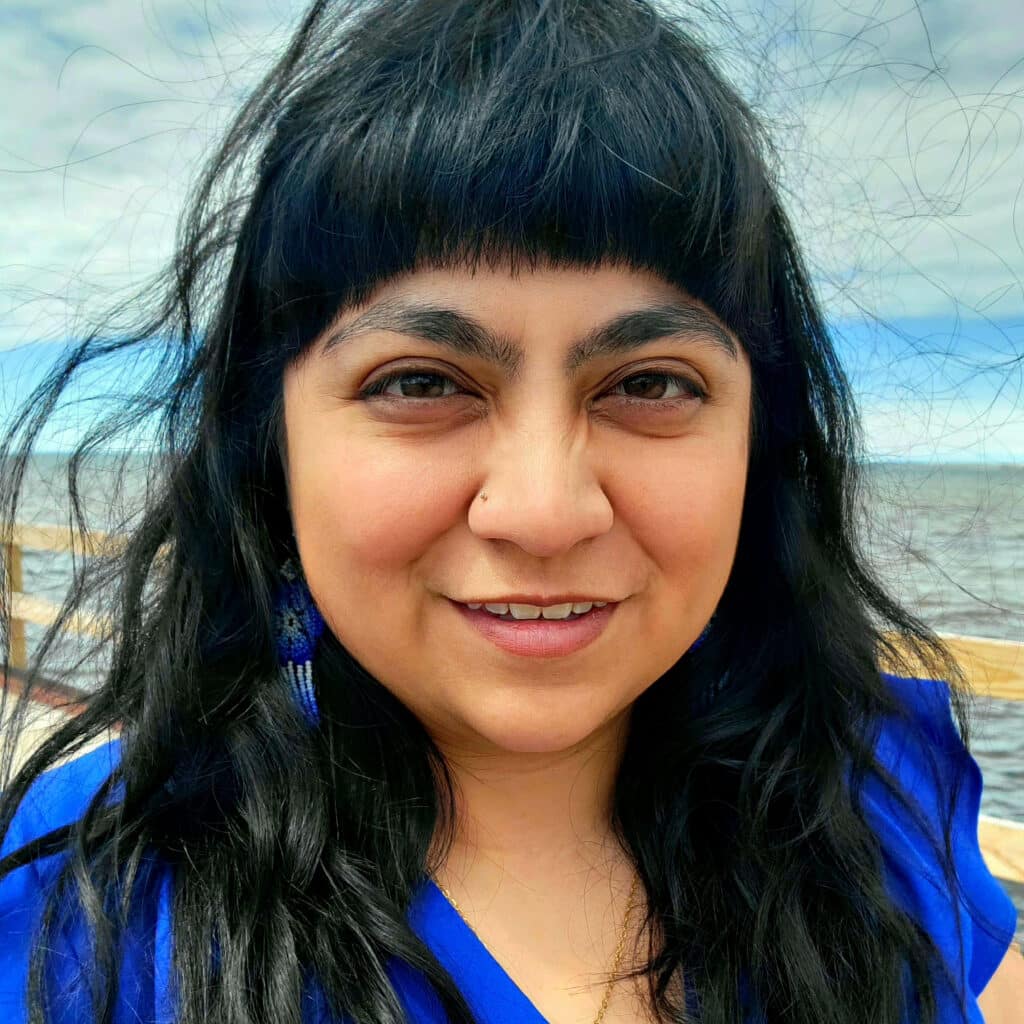
By Betsy López-Wagner
Betsy López-Wagner, principal and founder, López-Wagner Strategies, An Equitable Communications Agency®, shares her insights in this blog about the urgent global crisis of plastic pollution and its devastating impact on communities, ecosystems, and habitats like those in the Gulf of Mexico.
Waking up in the Rio Grande Valley in Texas, some 250 miles south of Flower Garden Banks National Marine Sanctuary earlier this month, I witnessed firsthand how our communities are continuously surrounded by plastic pollution.
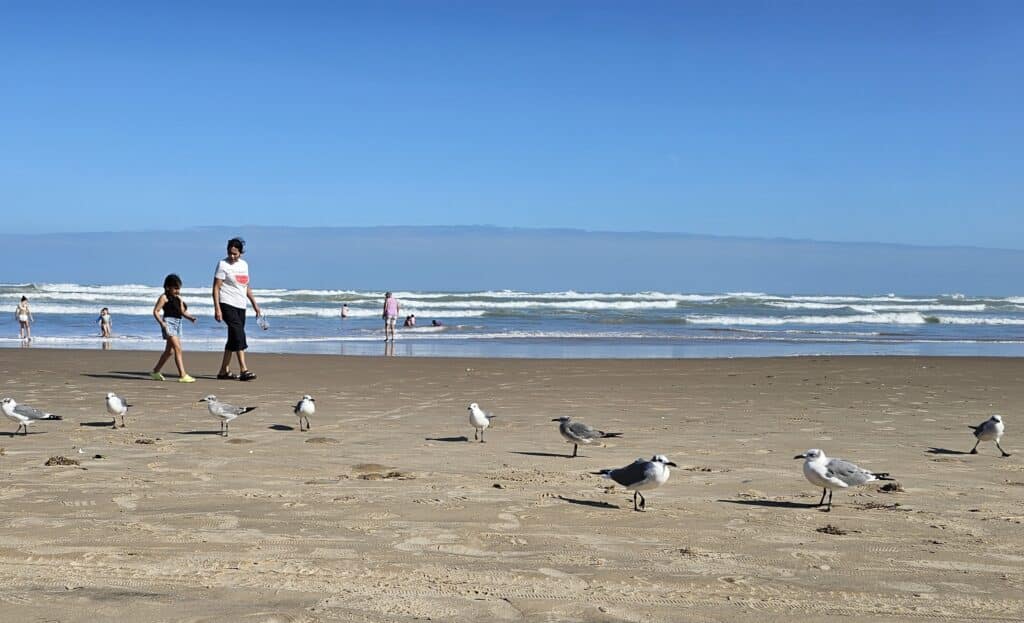
Walking along the sandy beach, amid the washed up moon jellyfish and scalloped seashells, my toes touched upon a medley of tiny plastics – microplastics – in colors from blues and greens to purples and yellows. The western Gulf of Mexico is a vital habitat, the nesting ground for Kemp’s ridley – the most endangered sea turtle in the world. Why then, would its shores and waters be polluted? Because of plastic pollution’s pervasive nature which puts communities, below and above critical habitat in the Gulf of Mexico, in danger. It is happening to communities, habitats and ecosystems around the world. And this month, world leaders have an opportunity to change our dependence on plastic.
Most of the items I collected from the South Padre Island beaches during those early morning hours were single use plastics ranging from food packaging and wrappers to forks, straws, plastic tobacco filters, and plastic soda bottles and tops, in addition to ribbons, fishing line and rope.
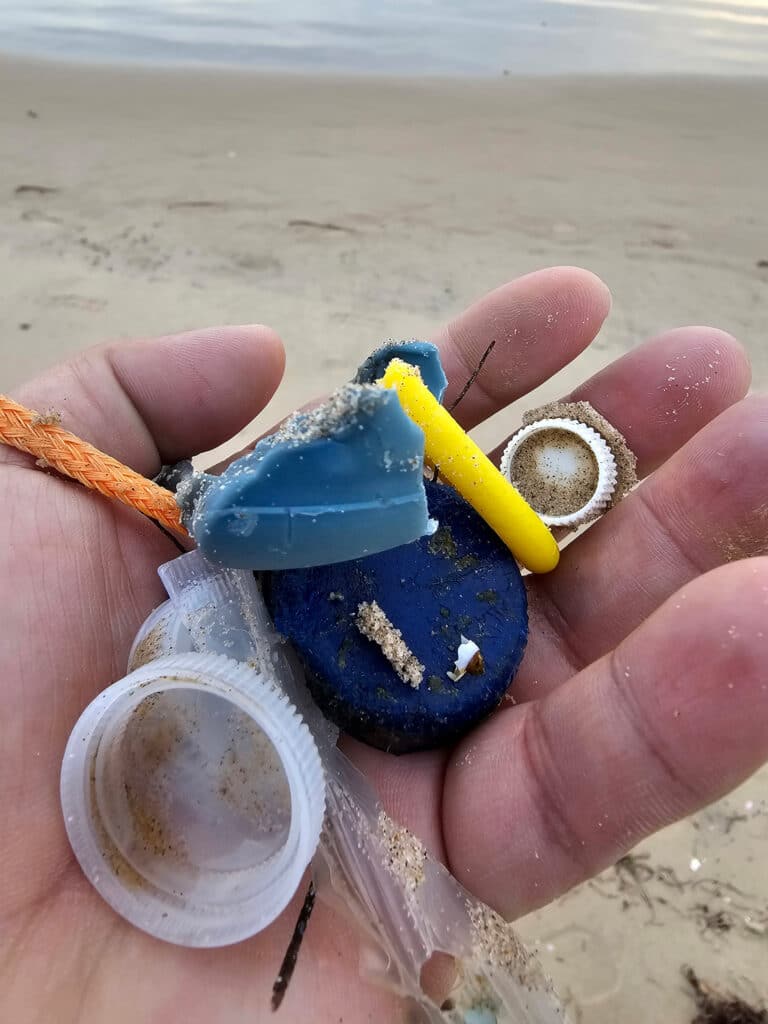
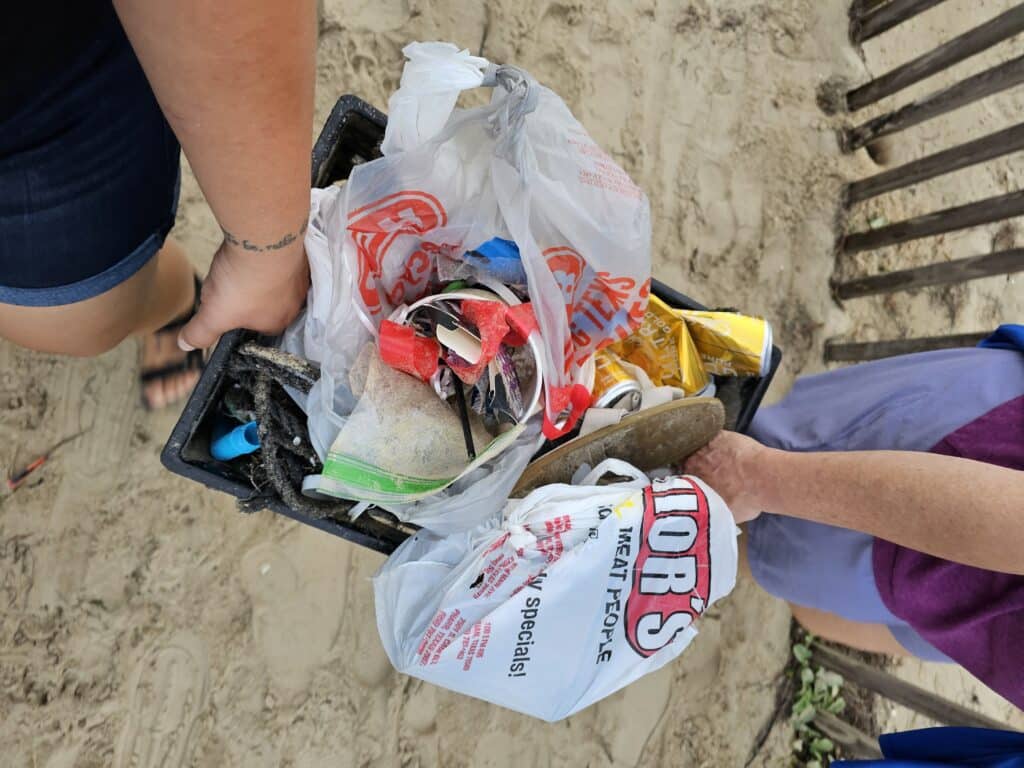
It made me think of the many coasts here in the U.S. and abroad where my family and colleagues have visited for work and pleasure. From the beautiful beaches of Spain, Belize, México, Puerto Rico and across the U.S., I’ve witnessed a plastic pollution problem, one that isn’t limited to the ocean, coasts, rivers, streams and Great Lakes – it lives in the air we breathe and the food we consume. And, it disproportionately affects low income and communities of color the most.
From plastics in our landfills, they’re improperly dumped, burned, transported, and they often make their way to the ocean: I’ve heard first-hand stories from waste pickers in Nairobi, Kenya last November, of working in hazardous conditions and their plea for a just transition in the first-ever global plastics treaty being negotiated by more than 170 countries.
As I continued to pick up plastic litter, straws and miscellaneous items, another memory resurfaced – one that hits closer to home – from when my almost 10-year-old child asked me just how much plastic is dumped in our waterways, and what youth can do to hold polluters and large corporations, who benefit from plastic production, accountable.
I told him, “Every day, the equivalent of over 2,000 garbage trucks full of plastic is dumped into our oceans, rivers, and lakes,” quoting United Nations Secretary-General Antonio Guterres. That number doesn’t even include the plastic that is dumped in landfills, burned, and makes its way back to our waterways. Everyone should be part of the solution.
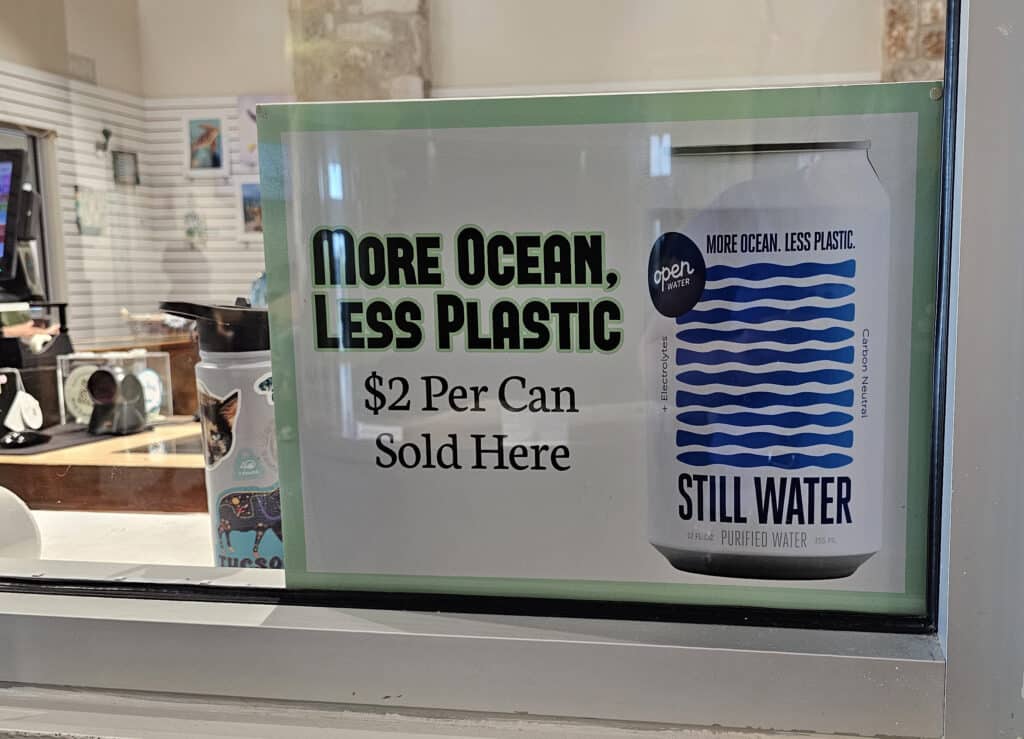
My child’s genuine curiosity peaked. His response to me was direct, simple and sound, “Why don’t we stop making plastic?”
Indeed, why don’t we? Bipartisan polling has shown strong support for ending plastic pollution.
The findings from the 2024 National Azul Poll: Latinos and the Ocean, a nationwide poll on Latine viewpoints on ocean protection released this summer, found that 75 percent of Latine voters across the country “support creating a legally-binding international treaty that aims to end plastic pollution, even if it means the U.S. may have to follow difficult and expensive rules”.
As a voter myself, I am one of the people who knows ending plastic pollution is necessary for the health and safety of our communities, and in eight short years my child will be, too.
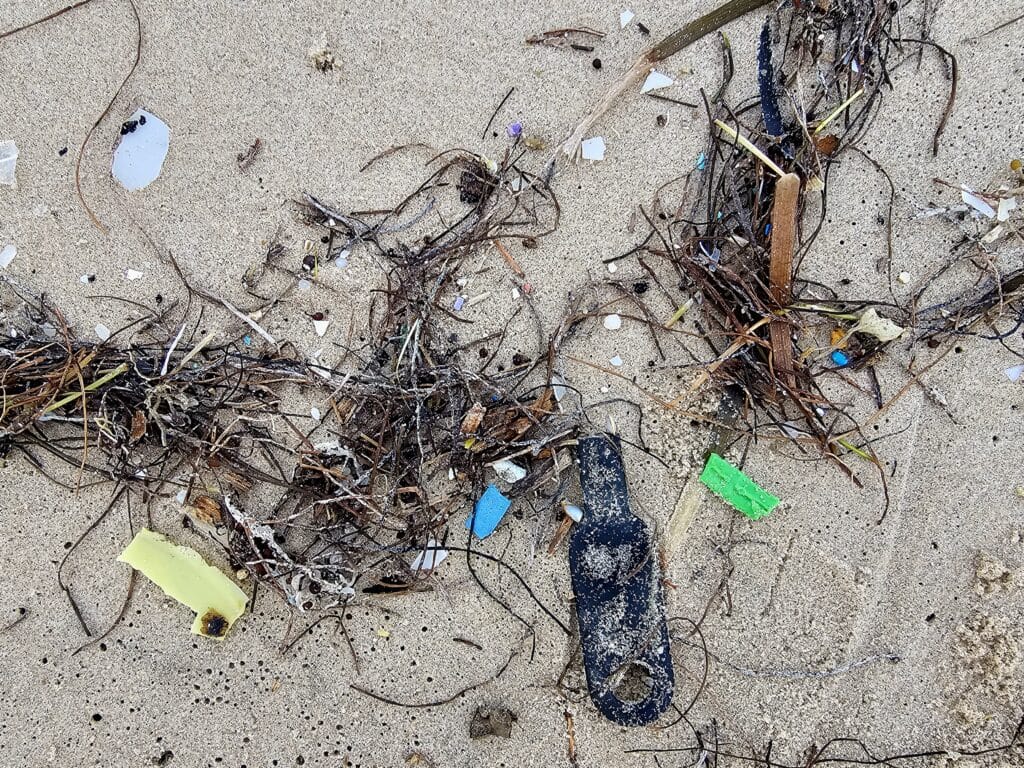
The U.S. is one of the largest producers of plastic, alongside China and the rest of Asia, with the majority of our domestic plastic production occurring along the Gulf Coast. This region is home to the “second largest petrochemical production in the country, with 150 facilities that make plastics, industrial chemicals and pesticides including oil refineries, owned by some of the largest corporations in the world — including Shell, Koch, Denka/Dupont, ExxonMobil, Dow Chemical, and Formosa Plastic,” according to EarthEcho International’s Module One, Environmental Justice curriculum.
This week, on the southeastern tip of the Korean Peninsula in Busan, South Korea, the fifth and final round of the Intergovernmental Negotiating Committee (INC-5) meeting for a Global Plastics Treaty is taking place.
We know the U.S. and global leaders have an unprecedented opportunity to take action to eradicate plastic pollution. We need and deserve urgency from our world leaders to address millions of tons of plastic waste discarded each year.
We, as global citizens of this fragile planet, must continue to raise our voices to call for an end to the lifecycle of plastics and the fossil fuels that make it possible.
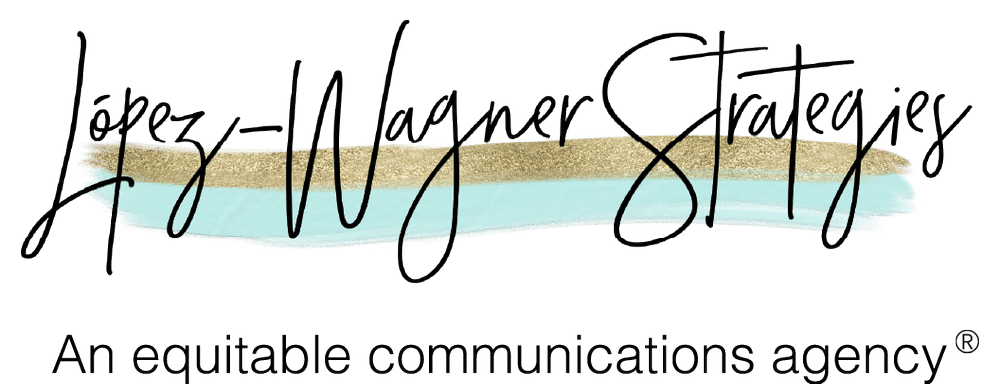
Betsy López-Wagner is the principal and founder of López-Wagner Strategies, An Equitable Communications Agency®. She is co-chair of the NOAA Sanctuary System Business Advisory Council – the network includes a system of 17 national marine sanctuaries and Papahānaumokuākea and Rose Atoll marine national monuments, and she serves on the board of directors for the Xerces Society for Invertebrate Conservation.
Check out Green 2.0’s Environmental Experts of Color Database to learn more about Betsy and to access the profiles of an expansive set of leaders on environmental and environmental justice topics.
